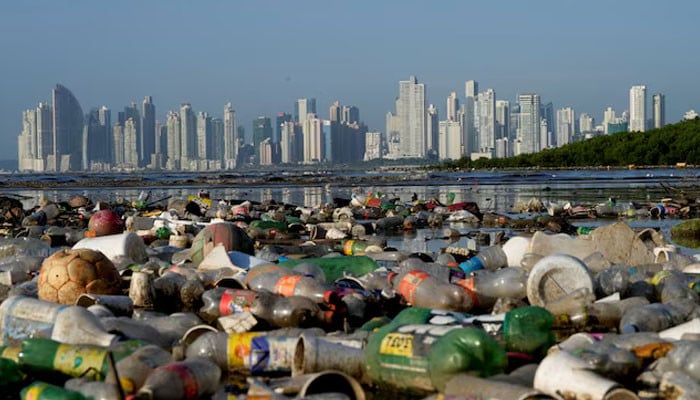Plastic pollution is an increasing global health crisis that causes widespread illness and death, with annual economic losses that exceed $ 1.5 trillion, according to a new report published in The Lancet.
The new evaluation of the existing evidence, which was carried out by leading health researchers and doctors, was published one day for the opening of new conversations in Geneva with the aim of sealing the first Convention on the World about plastic pollution.
“Plastics cause disease and death from childhood to old age and are responsible for health -related economic losses of more than US $ 1.5 trillion per year,” said the assessment in The Lancet Medical magazine.
By comparing plastic with air pollution and lead, the report said that its impact on health can be limited by laws and policy.
The experts called for the representatives of nearly 180 countries who gathered in Geneva to eventually agree to a treaty after previous failed attempts.
Philip Landrigan, a doctor and researcher at the Boston College in the United States, warned that vulnerable people, especially children, are most affected by plastic pollution.
“It’s up to us to respond in response,” he said in a statement.
“For those who meet in Geneva: please take on the challenge and the possibility of finding the common basis that makes meaningful and effective international cooperation possible in response to this global crisis.”
The researchers also warned of small pieces of plastic called microplastics, found in nature – and in human bodies.
The full effect of microplastics on health is not yet fully known, but researchers have raised the alarm about the potential impact of this omnipresent plastic.
The amount of plastic produced by the world has risen from two million tons to 475 million tons in 2022 in 1950, according to the report. The number is expected to triple by 2060.
Yet less than 10% of all plastic is currently being recycled, it added.
Landrigan said that the plastic “crisis” of the world is connected to his climate crisis. Plastic is made of fossil fuels.
“There is no underestimation of the size of both the climate crisis and the plastic crisis,” said Landrigan.
“They cause both diseases, death and disability today with tens of thousands of people, and this damage will become more serious in the coming years as the planet remains warm and the plastic production continues to increase,” he said.
The report also announced a new effort to follow the impact that plastic pollution has on health, the last in a series called The Lancet Countdown.






